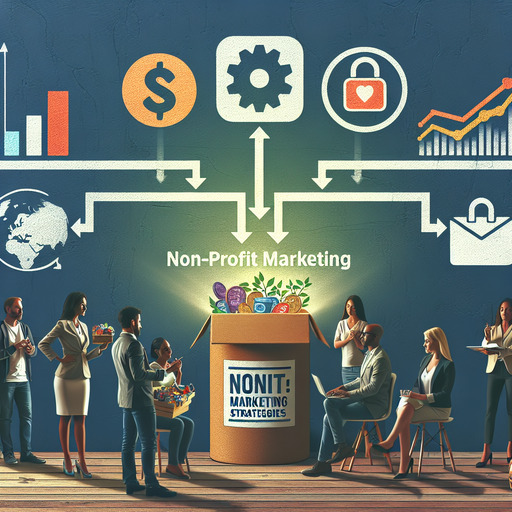
-
Table of Contents
- Effective Non-Profit Marketing Strategies: Engaging Donors and Amplifying Your Cause
- Understanding the Importance of Non-Profit Marketing
- 1. Building a Strong Non-Profit Brand
- 2. Leveraging Digital Marketing for Non-Profits
- 3. Enhancing Donor Engagement
- Conclusion: Amplifying Your Cause Through Strategic Marketing
- Questions and Answers
Effective Non-Profit Marketing Strategies: Engaging Donors and Amplifying Your Cause
In today’s competitive landscape, non-profit organizations must adopt innovative marketing strategies to stand out and effectively engage donors. With limited resources, non-profits need to maximize their outreach efforts to ensure their message resonates with potential supporters. This article explores actionable strategies for non-profit marketing, focusing on digital platforms, branding, and donor engagement.
Understanding the Importance of Non-Profit Marketing
Non-profit marketing is crucial for raising awareness, attracting donors, and driving engagement. By leveraging effective marketing strategies, non-profits can amplify their cause and make a significant impact. Let’s delve into some key strategies that can help your organization thrive.
1. Building a Strong Non-Profit Brand
Your brand is the face of your organization. A strong non-profit brand communicates your mission, values, and impact effectively. Here are some steps to build a compelling brand:
- Define Your Mission: Clearly articulate your mission and values to create a consistent message.
- Visual Identity: Develop a cohesive visual identity, including a logo and color scheme, that reflects your mission.
- Storytelling: Use storytelling to connect emotionally with your audience, sharing impactful stories of those you help.
For example, Charity: Water uses powerful storytelling and a consistent visual identity to engage donors and communicate their mission effectively.
2. Leveraging Digital Marketing for Non-Profits
Digital marketing offers cost-effective ways to reach a broader audience. Here are some strategies to consider:
- Social Media Engagement: Utilize platforms like Facebook, Instagram, and Twitter to share updates, stories, and engage with your audience.
- Email Campaigns: Develop targeted email campaigns to keep donors informed and engaged with your cause.
- SEO Optimization: Optimize your website for search engines to increase visibility and attract potential donors.
Consider the case of the ALS Association, which successfully used social media to launch the viral Ice Bucket Challenge, raising millions for ALS research.
3. Enhancing Donor Engagement
Engaging donors is essential for building long-term relationships. Here are some strategies to enhance donor engagement:
- Personalized Communication: Tailor your communication to individual donors, acknowledging their contributions and impact.
- Regular Updates: Keep donors informed about your organization’s progress and how their donations are making a difference.
- Events and Webinars: Host events and webinars to engage donors and provide them with opportunities to learn more about your cause.
For instance, the World Wildlife Fund (WWF) engages donors through personalized communication and regular updates on conservation efforts.
Conclusion: Amplifying Your Cause Through Strategic Marketing
Effective non-profit marketing strategies are essential for engaging donors and amplifying your cause. By building a strong brand, leveraging digital marketing, and enhancing donor engagement, your organization can make a significant impact. Remember, the key is to communicate your mission clearly and connect with your audience on an emotional level.
For more insights on non-profit marketing strategies, you can explore this Wikipedia page on Nonprofit Organizations.
Questions and Answers
Q1: How can non-profits effectively use social media for marketing?
A1: Non-profits can use social media to share impactful stories, engage with their audience, and promote fundraising campaigns. Consistent posting and interaction with followers can help build a strong online community.
Q2: What role does storytelling play in non-profit marketing?
A2: Storytelling is crucial in non-profit marketing as it helps create an emotional connection with the audience. Sharing real-life stories of those impacted by the organization’s work can inspire and motivate donors to contribute.
Q3: Why is donor engagement important for non-profits?
A3: Donor engagement is vital for building long-term relationships and ensuring continued support. Engaged donors are more likely to contribute regularly and advocate for the organization’s cause.
If you’re interested in learning more about our services or have questions about this blog, please reach out to us via our contact page.